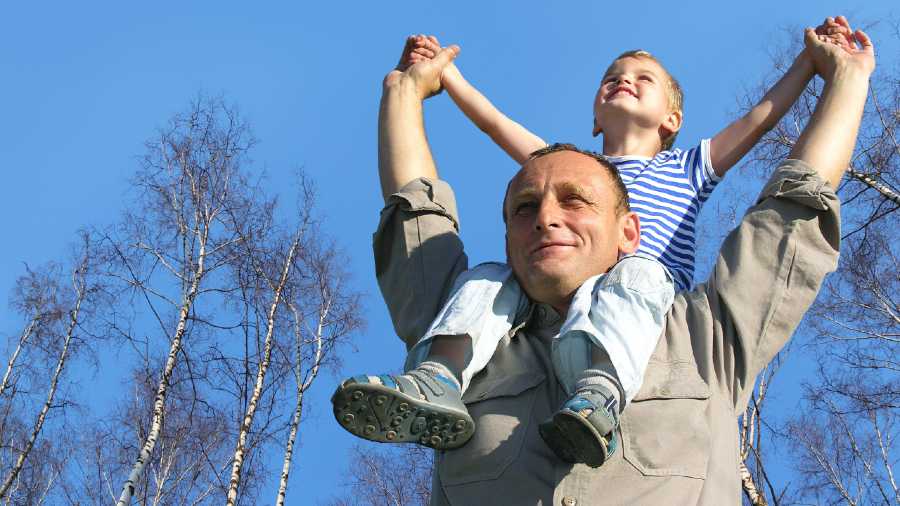According to a new theory about exercise, evolution and ageing, the answer lies, in part, in our ancestral need for grandparents. The theory, called the “Active Grandparent Hypothesis” and detailed in a recent editorial in Proceedings of the National Academy of Sciences, suggests that in the early days of our species, hunter-gatherers who lived past their childbearing years could pitch in and provide extra sustenance and succour to their grandchildren, helping those descendants survive. The theory also makes the case that it was physical activity that helped hunter-gatherers survive long enough to become grandparents — an idea that has potential relevance for us today, because it may explain why exercise is good for us in the first place.
Most of us probably think we already know why we should exercise. But those benefits explain how exercise is good for us, “not why”, explained Daniel Lieberman, an evolutionary biologist at Harvard University in the US, and lead author of the editorial.
Recently, he began to wonder why moving seems to have such a different impact on us compared to other primates. Studies by Lieberman and others have found that wild and captive apes typically walk for fewer than two miles a day, less than the average American adult, who walks about two-and-a-half miles a day, and far less than modern hunter-gatherers, such as the Hadza of Tanzania, who often cover six miles or more a day.
But despite this relative languor, apes rarely develop the kinds of disorders tied to inactivity in humans, such as heart disease, arthritis and diabetes. They manage to remain healthy without much activity, while we generally cannot.
On the other hand, we typically outlive apes and most other mammals. Hunter-gatherers, whose life spans are thought to mimic those of our forebears, often live well into their 70s (provided they survive early childhood). This is well past the age of childbearing, at least for women, which is unusual in nature.
A famous 1998 paper, also published in Proceedings of the National Academy of Sciences, proposed that women evolved to live well past menopause to help ensure that successive generations thrive. This idea, known as the Grandmother Theory and widely accepted by anthropologists today, describes how mothers provide food and care to their children and then, when their children have children, help to feed and care for those babies, ensuring the success of future generations.
But Lieberman and his colleagues felt the Grandmother Theory left some questions unanswered about what it was that allowed humans to live so long, compared with most other species. That’s where physical activity came in.
Early humans had to move around often to hunt for food, the thinking goes, and those who moved the most and found the most food were most likely to survive. Over eons, this process led to the selection of genes that were optimised by plentiful physical activity. Physical activity likewise appears to jump-start various cell processes controlled by genes that help to promote health. In this way, evolution favoured the most active tribespeople, who tended to live the longest and could then step in to help with the grandchildren, furthering active families’ survival.
Crucially, the new Active Grandparents paper also delves into what it is about physical activity that makes it still so necessary for healthy ageing today. For one thing, moving around uses up energy that might otherwise be stored as fat, which, in excess, can contribute to diseases of modern living, such as type 2 diabetes, Lieberman and his co-authors write. Activity also sets off a cascade of effects that strengthen us. This idea that we can, should and even must stay active as we age, thanks to human evolution, is at the heart of the Active Grandparent Hypothesis.
Some experts, however, question some of its assumptions. The Active Grandparent Hypothesis does not differentiate between men and women, said Kristen Hawkes, a distinguished professor of anthropology at the University of Utah in the US, who was the primary author of the Grandmother Theory.
The hypothesis suggests that physical activity affects people in ways that may be unique to humans. “But physical activity helps improve health span in other species, such as mice,” said Michael Gurven, an anthropologist at the University of California, Santa Barbara, US, who studies biology and evolution and is working on a book about longevity in hunter-gatherers. Still, he said, “There’s no doubt habitual physical activity can improve health. I like how this paper doesn’t take that fact for granted, but instead focuses on the simple question: why?”
The answer Lieberman and his co-authors settled on is worth keeping in mind as 2022 ripens and we add more months and years to our lives. “We’ve been selected” through evolution to be active, Lieberman said. And being physically active may help to ensure “the span of our good health matches the span of our lives”.
NYTNS











